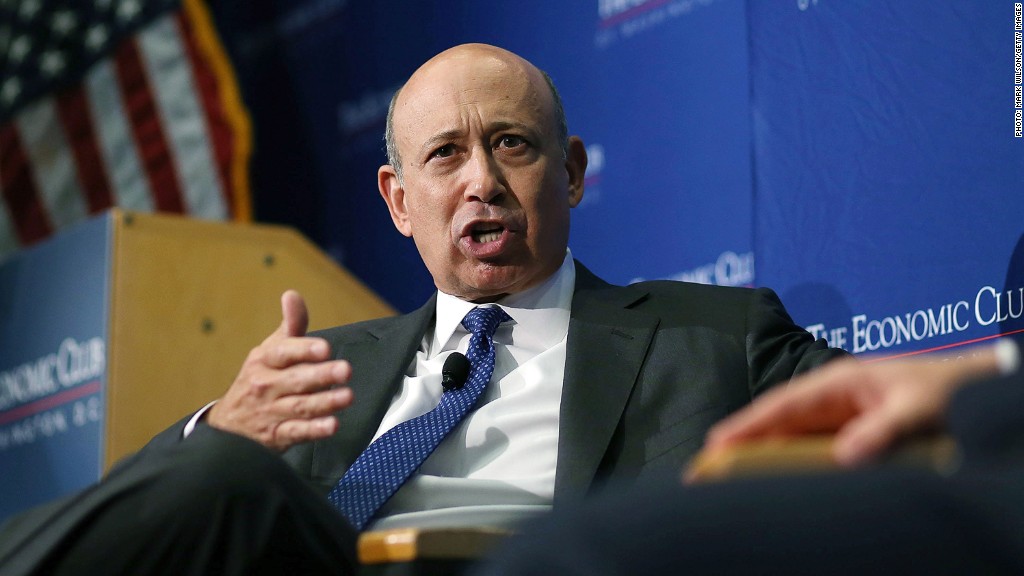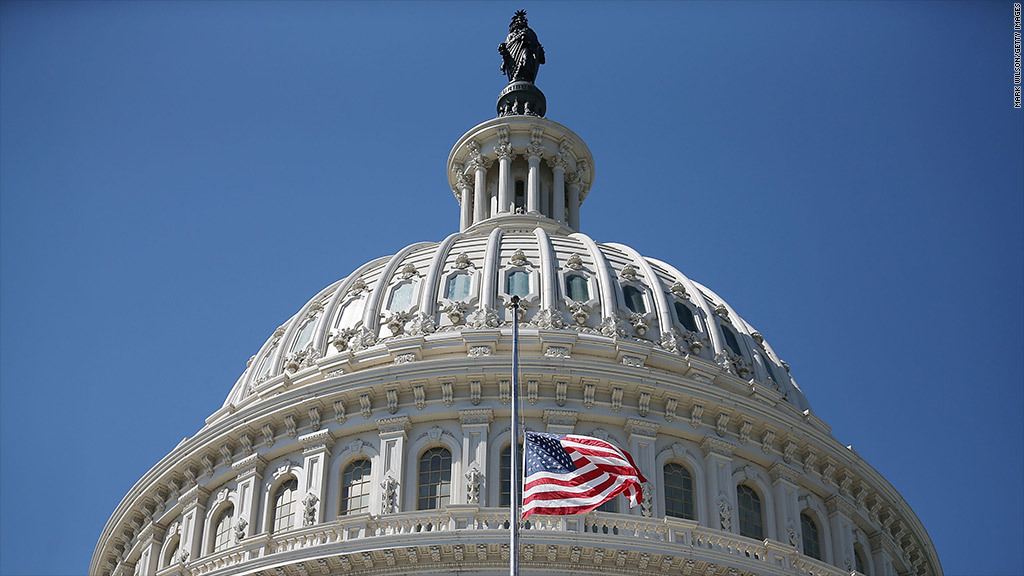
Goldman Sachs CEO Lloyd Blankfein wants politicians and business leaders to work together to avoid the "fiscal cliff," even if it means the rich end up paying more in taxes.
"I believe that tax increases, especially for the wealthiest, are appropriate," Blankfein wrote in a Wall Street Journal commentary in Wednesday's edition.
But those taxes must also be met with "serious cuts in discretionary spending and entitlements."
Blankfein argues that marginal tax rates should be kept low, but additional revenue will be generated by expanding the personal income tax base through closing loopholes.
The Goldman chief executive had already lent his support to the Campaign to Fix the Debt, a nonpartisan group founded by Erskine Bowles and Alan Simpson, who chaired President Obama's debt reduction commission. He was one of 87 CEOs of major companies who signed onto the campaign, which also drew support from Jamie Dimon of JPMorgan Chase (JPM), Steve Ballmer of Microsoft (MSFT), Jeff Immelt of General Electric (GE), and Samuel Allen of Deere & Company. (DE)
The CEOs back the plan proposed by Bowles and Simpson that would reduce debt by $4 trillion over a decade by cutting defense and discretionary spending, curbing federal entitlement costs and reforming the tax code.
The campaign is pushing for tax reform that lowers tax rates, reduces the value of tax breaks and raises revenue to reduce the deficit.
Related: AMT is fiscal cliff headache
Blankfein cautioned that an agreement to cope with the fiscal cliff will "require flexibility and shared sacrifice" if politicians want to remove the risk of a double-dip recession.
The stakes are high for the president and Congress to stop the country from going over the fiscal cliff, which economists and CEOs agree would hurt the economy.
At the end of this year, the George W. Bush-era tax cuts are set to expire, and after the first of the year, automatic spending cuts will commence that amount to $1.2 trillion in deficit reduction over 10 years.
"Expiring tax cuts and budgetary sequestrations that take effect on Jan. 1 will derail the fragile recovery," Blankfein wrote. "We in the business community have a responsibility to contribute to a better understanding of the urgency of averting a crippling and self-inflicted recession."

Blankfein urged the parties to compromise.
"There is more than $1 trillion of cash that is sitting on the balance sheets of U.S. nonfinancial companies," he wrote. "With certainty about tax rates, companies will increase their capital expenditures (currently at anemic levels), contributing to a virtuous cycle of jobs and growth."
He also hit on the need to restore confidence in public finance by implementing spending cuts, entitlement reform and revenue increases.
Obama will meet with top American CEOs Wednesday to discuss possible solutions. Corporate leaders are expected to press the president on issues confronting their companies related to tax cuts and revenue generating ideas tied to the fiscal cliff.


